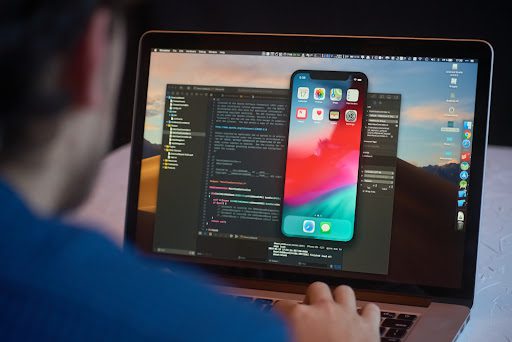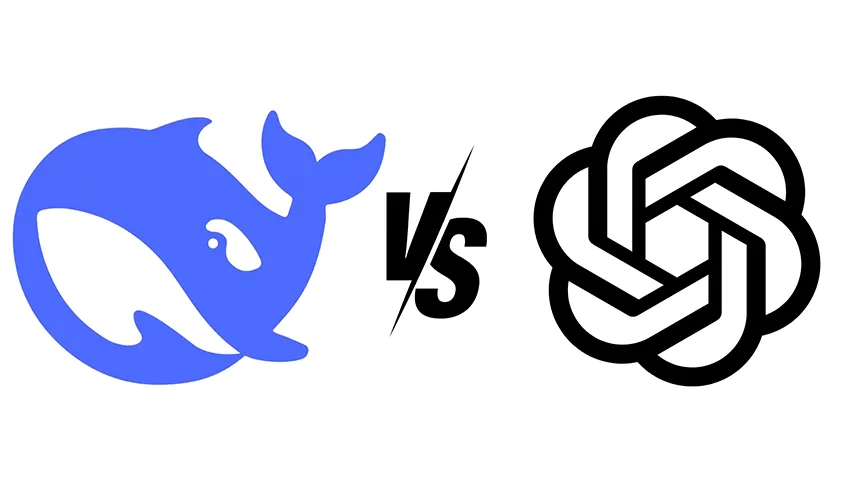-
Find Services
-
Generative AI
-
Blockchain Technology
-
Mobile App Development
-
Software Development
-
Web Development
-
E-Commerce Development
-
App Designing (UI/UX)
-
Web Designing (UI/UX)
-
IoT Development
- Industry
- Manufacturing
- Health Care
- Logistics
- Automotive
- Testing Services
- DevOps
- Game Development
- Robotic Process Automation
- AR & VR Development
- Browse All Services
-
Generative AI
-
Find Agencies
- Submit Reviews
- Research & Surveys

As blockchain technology continues digging deeper into the fast-paced tech environment, becoming more necessary than ever for business success, you will need qualified Top blockchain developers either to build decentralized applications or create robust and secure systems. But how are you going to know which skills are beneficial? Let’s dive deep into the top 10 essential skills you should look for when hiring blockchain developers in this article.
Why Hire Blockchain Developers?
Hiring blockchain developers becomes more than just finding someone who can simply write code; it involves bringing on board a developer who understands the intricacies of blockchain technology to ensure your project stands up to the test about scalability, security, and evolving trends. Without a proper set of skills, your blockchain initiatives might find problems before they even take off the runway.
List of skills to Analyze before hiring
Skill 1: Proficiency in Blockchain Architecture
Understanding the Principles Behind Blockchain
Blockchain architecture lays the foundational backbone behind every decentralized system. Public, private, or hybrid blockchain, the knowledge of how these systems are built from scratch is crucial. Developers building blockchains need to understand how varying architectures work to create efficient systems that satisfy the needs of businesses.
Awareness of Consensus Algorithms
Consensus algorithms are the very backbone of any blockchain network, ensuring that all nodes in the system come to some kind of consensus about the current state of the ledger. A strong understanding of such algorithms as Proof of Work (PoW), Proof of Stake (PoS), and Delegated Proof of Stake (DPoS) is critical for developers when considering blockchain integrity and security.
Skill 2 : Robust Knowledge of Cryptography
How Cryptography Empowers Blockchain Security?
Cryptography is an essential skill for blockchain developers. Blockchain systems function inherently securely because of the cryptographic principles that underpin them. A blockchain developer should be able to apply hashing algorithms such as SHA-256 as well as comprehend how encryption enables securing blockchain transactions.
Symmetric vs Asymmetric Encryption
Another thing developers should know about is the symmetric and asymmetric encryption methods and know when to use them; blockchain technology primarily employs asymmetric encryption, which comprises a private and public key, to guarantee secure communication between parties.
Skill 3: Smart Contracts Expertise
Leading Smart Contract Platforms
Smart contracts are self-executing contracts where the terms of the agreement contained within them are directly written into lines of code. Developers should be well-versed with platforms like Ethereum, in which smart contracts find expression through Solidity and other systems like EOS or Hyperledger.
Why Smart Contracts Matter?
The beauty of a smart contract is that it eliminates middlemen, thus reducing costs and making it more efficient. Developers who understand the critical importance of developing clean, secure bug-free smart contracts will become a resource to your organization.
Skill 4: Hands-on experience with Distributed Ledger Technology (DLT)
How DLT Improves Transparency?
What differentiates blockchain from a database is something called Distributed Ledger Technology, which allows all of the nodes on a system to share an immutable ledger. Anyone experienced in DLT design can make systems that are not only transparent but incredibly secure and tamper-proof as well.
Skill 5: Proficiency in Programming Languages
Common Programming Languages for Blockchain Developers
Blockchain development requires proficiency in multiple programming languages. Developers should be familiar with languages such as Solidity, C++, Python, and even JavaScript to code decentralized applications (dApps) effectively.
Solidity, C++, and Python in Blockchain Development
Solidity, in particular, is vital for smart contracts on Ethereum. C++ is widely used due to its high performance, while Python’s simplicity makes it great for scripting and prototyping blockchain solutions.
Skill 6: Familiarity with Data Structures and Algorithms
Data Structures in Blockchain
A blockchain developer must have a strong grasp of data structures like Merkle Trees, hash tables, and linked lists, as they are integral to how blockchain systems store and access information. These structures allow for the secure storage and quick retrieval of data.
Why Algorithms Play a Key Role in Blockchain Efficiency?
Efficiency in blockchain transactions often comes down to how well a developer understands and applies algorithms. Sorting, searching, and cryptographic algorithms all contribute to the overall performance of the blockchain system.
Skill 7: Detailed Knowledge of Blockchain Platforms
Leading Platforms Such as Ethereum, Hyperedge, and Ripple
Blockchain developers should be well-versed in leading platforms such as Ethereum, Hyperedge, and Ripple. Each of these platforms has unique protocols, consensus mechanisms, and features that developers must learn to build stable solutions.
Skill 8: Knowledge of Blockchain Development Tools
Must-use Tools Such as Truffle, Ganache, and Remix
Various tools help developers streamline their workflow. For example, Truffle is a development framework for Ethereum while Ganache is used to deploy a personal blockchain, and Remix is an online IDE to write Solidity code. The mastery of these tools is quite noticeably able to speed up development and testing processes.
Skill 9: Problem Solving and Analytical Thinking
Why Blockchain Projects Require Creative Problem Solvers
Blockchain projects, just like any other projects, have their inherent problems to be solved. Scalability, appropriate security, and proper governance are some of the major problems blockchain developers should deal with by combining analytical and creative thinking.
Skill 10: Up-to-date on Blockchain Trends and Innovation
How Continuous Learning Matters?
This is in Blockchain technology where evolution seems rampant. New platforms, protocols, and trends pop up regularly; therefore, calls for developers to always be up to date with any developments. Whether it’s the latest developments in DeFi or the emerging platforms, one needs to keep on learning; this ability is an invaluable one.
Conclusion
Building a blockchain is by no means a very complex, multi-dimensional field, and the many talents that hire blockchain developers expect coding ability is by no means the only aptitude. There are competencies, for instance, like understanding blockchain architecture, cryptography, smart contracts, programming languages, and creative problem-solving skills, among others. The right job to find the best blockchain developer is a very tough and time-consuming task, which may require even months of tuning and trial, but once one has the required skills on board, it goes pretty smoothly and easy to manoeuvre through the ever-changing landscape of blockchain technologies.
Latest Posts
Categories
Tags
Submit Your Inquiry
Related Posts

How Can Blockchain Technology Help You in the App Development Sphere?
Introduction Blockchain technology was first outlined in 1991 by two researchers, Stuart Haber and W. Scott Stornetta, who wanted to create a system where document timestamps couldn't be faked. However, over the years, technology's possibilities considerably expanded – nowadays, its apps, along with multiple tools, provide people with new heights of profit for businesses and startups. Blockchain development services lie in finance, manufacturing, health, entertainment media, real estate, and many other sectors. But how does technology actually work? And what are the advantages of the blockchain in the app development sphere? If you'd like to get the answers to all of those questions, you've come to the right place – today, we're going to tell you about blockchain app development services, as well as why it's better to choose such technology while developing an app. So let's not waste time and get to the point! What is blockchain technology? Blockchain is a special type of database. Probably, you've also heard of the term distributed ledger technology (DLT) – actually, it's almost the same thing. Blockchain has several unique features. There are rules about how data can be added, and as soon as data has been saved, it's almost impossible to change or delete it. Over the course of time, data is added in structures, called blocks. Each block is built over the last and includes information about the previous one. So, if we have a look at the most up-to-date block, we're able to check that it has been created after the last one. Thus, if we continue all the way down the "chain", we'll reach the very first block, known as the genesis block. To get a full understanding, let's imagine we have a spreadsheet with two columns. We add any data we want to store in the first cell of the first row. This data is turned into a two-letter identifier, which will be used as part of the next input in the future. Do you remember we've told you that it's impossible to go back and change or delete data? That's because it would be easy for everyone to say that it's been done, and they'd simply ignore your attempted change. Suppose you change the data in the first cell – in this case, you'll get another identifier, which means your second block would have different data, leading to another identifier in row 2, and so on. So, actually, the last identifier is a product of all the information coming before it. What benefits does blockchain technology have in the app development sphere? Now, let's move on and take a closer look at the main question – how can blockchain help you while developing an app? As we've already mentioned above, this well-known exciting technology – blockchain – is concerned with highly-secured features, which makes it being adopted by several industries. The technology is increasingly becoming a significant tool in the mobile app developers' arsenal this year. With such widespread functionality and potential, blockchain is being used for mobile app development more and more with each passing day. But why and how exactly? Below you'll see several undeniable advantages of the technology: Blockchain provides extra security to mobile apps. Blockchain technology makes your mobile app development secure and free from all threats. As we've noted above, since it has been designed with a high level of data encryption, it's kind of impossible for anyone to interfere in such a system. Blockchain is extremely reliable. Blockchain is designed in such a way that there are nil chances of collapsing. Thanks to that, it makes the technology highly reliable and stable. Blockchain is simple to use. Blockchain technology is user-friendly, so it's quite easy for users to design, apply and thus incorporate into their mobile applications. Blockchain is developing continuously. The growth rate of blockchain in comparison to other technologies is very high. In the future, blockchain is definitely going to have a maximum number of software updates, as well as enhanced services. Blockchain promotes simplicity. As blockchain is famous for simplicity, it allows developers to build mobile applications easily. Blockchain keeps the apps updated. Today, blockchain is the fastest growing technology, so it brings a maximum number of updates within a shorter period of time. Mobile apps built with blockchain will always be ready to get regular updates. Conclusion Blockchain isn't just about the crypto and NFT world. Thanks to today's article, you can see that with the help of technology's possibilities, we're able to ease the process of app development and provide customers with truly secure use. In addition, blockchain can manage your warehouses and inventory to run as fast as possible. As you might acknowledge, almost everything is actually decentralized these days, starting from the set of identification data and confirmation and finishing with saving in multiple solid junctions with blockchain. We've told you everything you need to know about the technology's impact on app development: what the blockchain is in general, the way it works, and how you can benefit from choosing blockchain instead of other technologies. We sincerely hope our small guide will help you even while coming up with your own blockchain app development idea. Just bear in mind one key thing – connecting your business with blockchain technology, you'll definitely multiply your business reach. So thank you for reading, and develop wisely!







